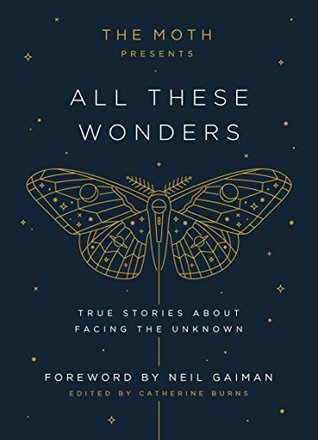More on this book
Community
Kindle Notes & Highlights
Started reading
January 27, 2024
Honesty matters. Vulnerability matters. Being open about who you were at a moment in time when you were in a difficult or an impossible place matters more than anything.
Telling your story, as honestly as you can, and leaving out the things you don’t need, that’s vital.
The Moth connects us, as humans. Because we all have stories. Or perhaps, because we are, as humans, already an assemblage of stories. And the gulf that exists between us as people is that when we look at each other we might see faces, skin color, gender, race, or attitudes, but we don’t see, we can’t see, the stories. And once we hear each other’s stories we realize that the things we see as dividing
us are, all too often, illusions, falsehoods: that the walls between us are in truth...
This highlight has been truncated due to consecutive passage length restrictions.
Maybe I wasn’t the only one who was worn out by stories that could only be told with the help of thousands.
But the stories in this book show us that when we dare to face the unknown, we usually discover that we have more grit and tenacity than we thought. And we often land in a place that we couldn’t even have imagined when we started out.
The number-one quality of all great storytellers is their willingness to be vulnerable, to tell on themselves in front of thousands. Each story told is a gift to the listeners.
Sometimes it is easier to try to make sense of the world one story at a time.
And when we dare to listen, we remember that there is no “other,” there is only us, and what we have in common will always be greater than what separates us.
fear pervades everything: where you live, what you do for a living. You find the first solid thing, and you don’t risk going any further.
“Presuming we can fix all of the societal ills right here and now, where would you begin? Go.”
Really, you have to understand that nobody is asking us these kinds of questions.
Solving society’s ills doesn’t get you a pension. We weren’t thinking about these kind of things.
Those talks made us think that maybe there was a little more to us than we knew.
Well, shit, if (a) I like talking about these big
things, and (b) the universe is infinite, then (c) there’s gotta be more job options than cop.
But really, I think that when we stood at that same crossroads as our parents had, it was this experience that gave us something that unfortunately they didn’t have, and that’s ...
This highlight has been truncated due to consecutive passage length restrictions.
It was a chance at living again, because all I had come to know, since I was eleven, was how to survive. I didn’t know how to live. All I knew, really, up until this point in my life, was struggle. This was what I had come to expect from life, and I didn’t trust in happiness or any kind of normality at all.
What do these school principals think? Do they really think that when there’s a war in your village or when your town is attacked, and people are gunned down in front of you, and you’re running for your life, you’re thinking to
yourself, “You know, I must take my report card and put it in the back of my pocket.”
My silence allowed me to experience things, to participate in my childhood, to do things I hadn’t been able to do as a child.


